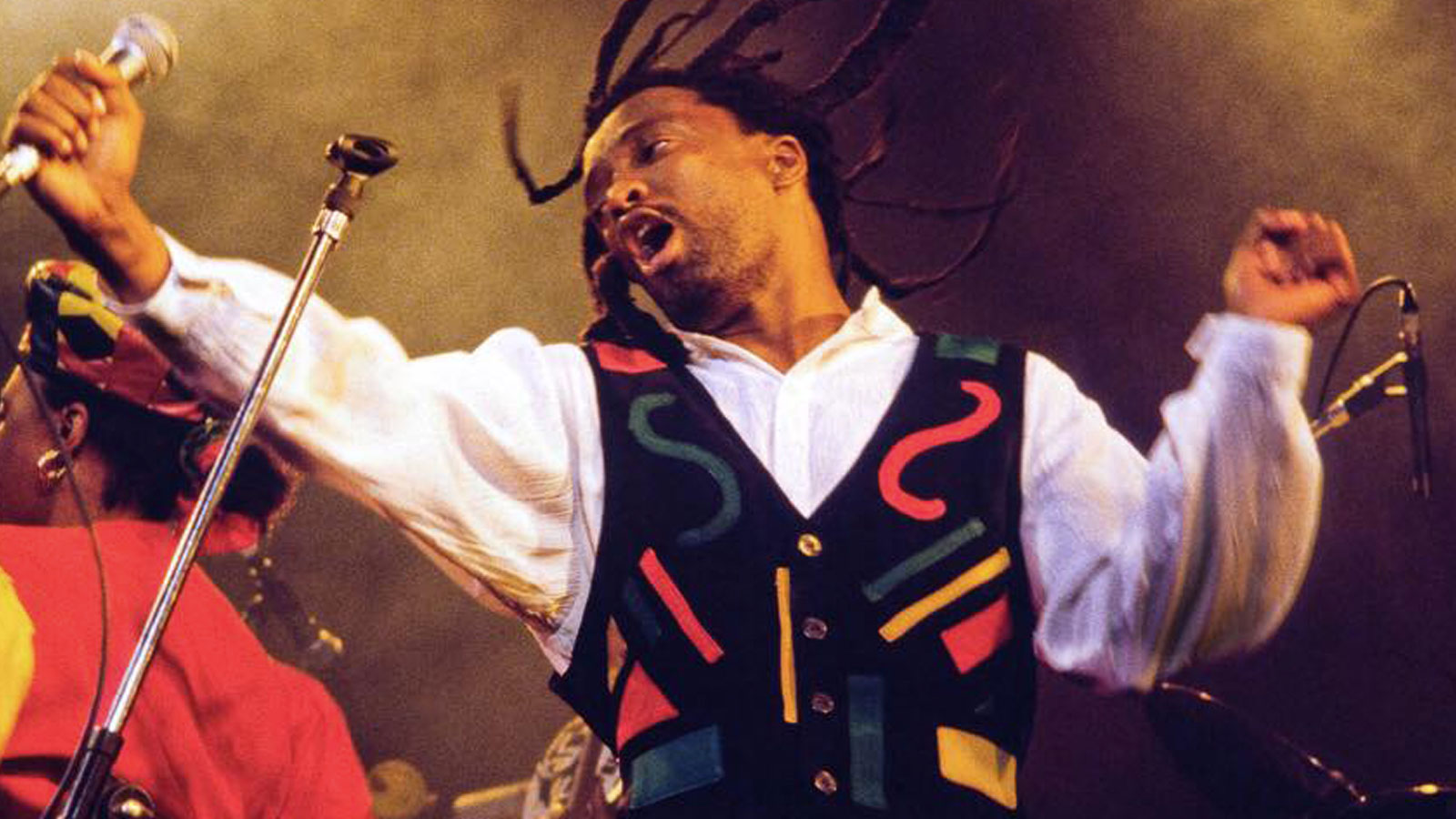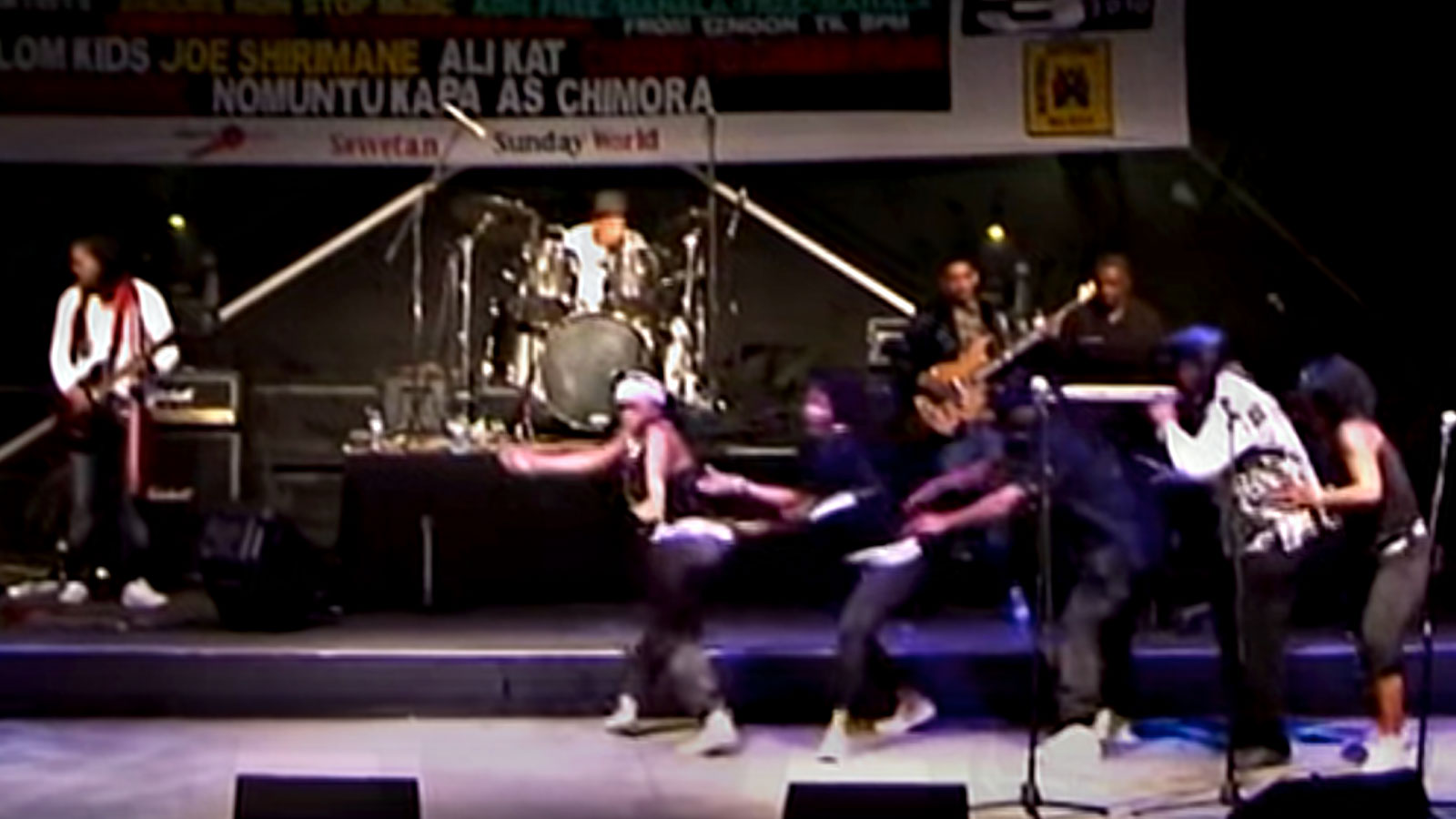Born in Ermelo, Mpumalanga in 1964. Began his music career singing mbaqanga music with The Love Brothers, later to become Lucky Dube And The Supersoul.
He released his first album, Lengane Ngeyethu, in 1981. He released five further mbaqanga albums, the last being Umadakeni in 1987.
During this time he switched to reggae music and his career took off in South Africa, Africa and internationally towards the back end of the 1980s. His first reggae release was the Rastas Never Die EP released in 1984.
In 1986 he released two Afrikaans EPs as Oom Hansie (Die Kaapse Dans and Help My Krap).
His first full reggae LP release was Think About the Children also released in 1986. This was followed by the top selling albums Slave (1987), Together as One (1988), Prisoner (1989), House Of Exile (1991) and Victims (1993).
He went on to release several more albums and tour internationally before his death in October 2007, a victim of violent crime.
Photograph of Lucky Dube courtesy of Harold Gess Photography.
All Rights Reserved.




